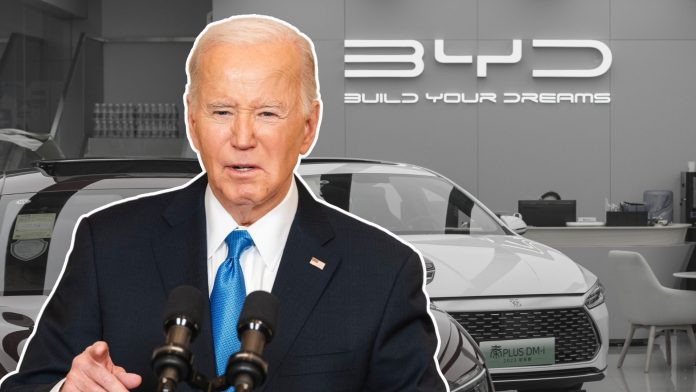As President Biden’s administration prepares to leave office this month, it has finalized sweeping rules effectively banning Chinese vehicles from the U.S. market, citing national security concerns. The new regulations, announced by Commerce Secretary Gina Raimondo, target Chinese software and hardware used in U.S. vehicles and prohibit Chinese car companies from testing self-driving vehicles on American roads.
Key provisions of the ban
- Software ban: Begins with the 2027 model year, prohibiting Chinese-made software in U.S. vehicles.
- Hardware ban: Takes effect in 2029, disallowing the use of Chinese-made hardware in vehicles sold in the U.S.
- Autonomous vehicle testing: Chinese automakers will be barred from testing self-driving cars on U.S. roads.
While the ban is comprehensive, a loophole allows Chinese software already in use to remain as long as it is no longer maintained by a Chinese firm.
However, automakers have expressed concerns over the timeline and feasibility of the new rules. Companies like GM, Toyota, Volkswagen, and Hyundai have indicated they may need additional time to meet the 2029 hardware requirements, with some seeking alternative suppliers. Polestar, a subsidiary of China’s Geely, warned it might be unable to sell vehicles in the U.S. unless granted special authorization.
Adding to the challenges, the Biden administration recently approved a 100% tariff on Chinese electric vehicles, a dramatic increase from the previous 25% rate in 2024. This move follows a reported 70% year-over-year increase in Chinese EV exports from 2022 to 2023.
Exemptions and Loopholes
Further, the rules exclude vehicles over 10,000 pounds, allowing Chinese companies to continue producing electric buses for specific markets like California.
Although the enforcement of the bans will be the responsibility of the incoming Trump administration, the future of these policies remains uncertain. President-Elect Trump has suggested a focus on incentivizing foreign automakers to build plants in the U.S. and hire American workers. “We’re going to give incentives, and if China and other countries want to come here and sell the cars, they’re going to build plants here,” Trump announced.
As the transition unfolds, the Biden administration’s aggressive approach toward Chinese vehicles has set the stage for significant shifts in the U.S. automotive landscape, with national security and economic independence as driving forces behind these landmark decisions.



